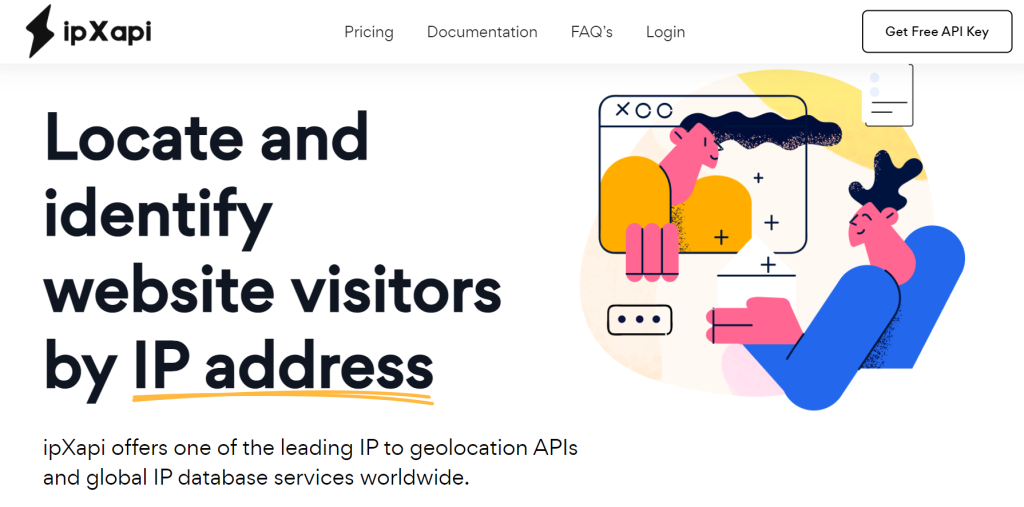Are you trying to get into the world of IP geolocation APIs but don’t know where to start? Then this article is for you!
But first, what is an IP address? An IP address is a unique online identity assigned to each computer or internet-connected phone. The normal IP address consists of four or six distinct digits separated by a decimal.
Electronic devices may communicate and share data with one another using IP addresses. Despite the fact that every computer or internet-connected device has its own IP address (“Local IP addresses”), these IPs are rarely visible to the outside world. An external IP address is supplied by the user’s internet service provider and is the one that is shared while visiting a website or otherwise using the internet.

With an IP address, you may have access to a wealth of information. To emphasize, an IP address is not sufficient. To acquire this user information, you must utilize a geolocation database.
Most geolocation databases include the continent, nation, state/region, city, and time zone of the electronic device as the most basic information. However, you may also find the internet service provider (“ISP”), estimated longitude and latitude, and, in some cases, the appropriate organization associated to the device.
IP-based geolocation is a method of determining the location of a computer or mobile device that is connected to the internet. All you need to get started is your target’s IP address, which you can retrieve using a simple coding script and a geolocation lookup engine.
A geolocation lookup tool searches public databases for contact and registration information for a certain IP address. With both of these tools at your disposal, simply enter the IP address into the geolocation lookup tool to obtain the position of your target.
How Does This Work?
IP-based geolocation software retrieves data about the electronic device using the IP address. It accomplishes this by searching a database for matches with the supplied IP address. Because these databases are developed and maintained by other parties, electronic device location data is dependent on the organization that controls that data.
This information can be obtained through an API, which is a software interface that allows two applications to communicate with one another without requiring human interaction. This is a piece of software code that may be accessed or executed, and it is described as code that allows two separate software programs to communicate and exchange data with one another.
But how can you utilize them to get information about an IP adress? To begin, you must identify an API that meets your requirements. There are plenty of them available online, and each one operates differently, making it difficult to pick between them all.
We’ll use IPxAPI, one of the most comprehensive tools available, to explain how IP geolocation APIs function and to assist you in making a decision. Because it is linked to several channels, this instrument may provide real-time IP data. The API database is updated daily, with up to 24 database revisions each day.

To use it, you need to:
- Sign up for an account at https://ipxapi.com/.
- Enter the IP address from which you wish to obtain data.
- Send it out and wait for a reply.
- Look for the information you need and keep it safe to use it later.
About ipXapi
ipXapi is a free website monitoring application that also serves as a sophisticated geolocation and IP address identification tool. Because of its database and API, this service provides a high level of accuracy in IP statistics. It is linked to a number of well-known ISPs, who provide regular updates on new and current IP ranges. Because ipXapi is linked to a huge number of real-time IP data channels, the API’s database is updated daily, with up to 24 database changes each day.

